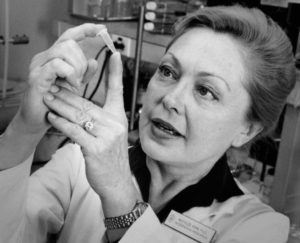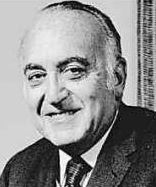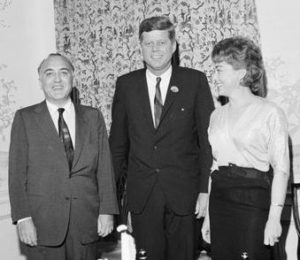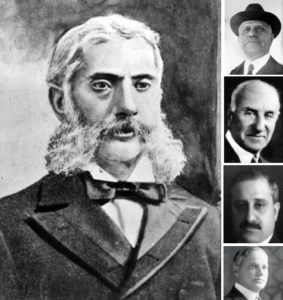Father of Geochemistry
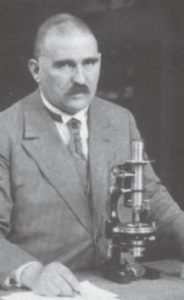 Victor Moritz Goldschmidt (1888-1947) was born in Switzerland, the son of a Jewish-Austrian chemist. The family moved to Norway in 1901 and Goldschmidt went on to study chemistry and geology at what would become the University of Oslo. He got his Ph.D at just 23 years of age, and won a prestigious award for his dissertation. That same year he became an associate professor. In 1929, Goldschmidt became the chair of minerology at the University of Göttingen, but resigned six years later to protest anti-Semitism, returning to Oslo. One of his key discoveries was the mineralogical phase rule, followed by a longer list of the Geochemical Laws of the Distribution of Elements. For this ground-breaking work (and for literally writing the first textbook on geochemistry), he has been called the “Father of Geochemistry”. By 1942, the Nazis had occupied Norway and arrested Goldschmidt. He was taken to the Berg concentration camp where he fell severely ill. He was about to be deported to Auschwitz when a group of colleagues intervened and convinced the Nazis that his scientific knowledge would be useful to them. Goldschmidt was eventually able to escape to Sweden, and from there he was smuggled to England by a British intelligence unit. He assisted the British war effort, was elected to the Royal Society, and continued his work at the Macaulay Institute for Soil Research. He would return to Norway following the war, but died soon after. Goldschmidt received many awards, including being knighted by the king of Norway. The region of Goldschmidtfjella in Norway is named after him, as is the mineral goldschmidtite (KNbO3).
Victor Moritz Goldschmidt (1888-1947) was born in Switzerland, the son of a Jewish-Austrian chemist. The family moved to Norway in 1901 and Goldschmidt went on to study chemistry and geology at what would become the University of Oslo. He got his Ph.D at just 23 years of age, and won a prestigious award for his dissertation. That same year he became an associate professor. In 1929, Goldschmidt became the chair of minerology at the University of Göttingen, but resigned six years later to protest anti-Semitism, returning to Oslo. One of his key discoveries was the mineralogical phase rule, followed by a longer list of the Geochemical Laws of the Distribution of Elements. For this ground-breaking work (and for literally writing the first textbook on geochemistry), he has been called the “Father of Geochemistry”. By 1942, the Nazis had occupied Norway and arrested Goldschmidt. He was taken to the Berg concentration camp where he fell severely ill. He was about to be deported to Auschwitz when a group of colleagues intervened and convinced the Nazis that his scientific knowledge would be useful to them. Goldschmidt was eventually able to escape to Sweden, and from there he was smuggled to England by a British intelligence unit. He assisted the British war effort, was elected to the Royal Society, and continued his work at the Macaulay Institute for Soil Research. He would return to Norway following the war, but died soon after. Goldschmidt received many awards, including being knighted by the king of Norway. The region of Goldschmidtfjella in Norway is named after him, as is the mineral goldschmidtite (KNbO3).
Words of the Week
The fact that the universe had a beginning, that it obeys orderly laws that can be expressed precisely with mathematics, and the existence of a remarkable series of “coincidences” that allow the laws of nature to support life – do not tell us much about what kind of God must be behind it all, but they do point toward an intelligent mind that could lie behind such precise and elegant principles.
– Renowned biologist Francis Collins, The Language of God

